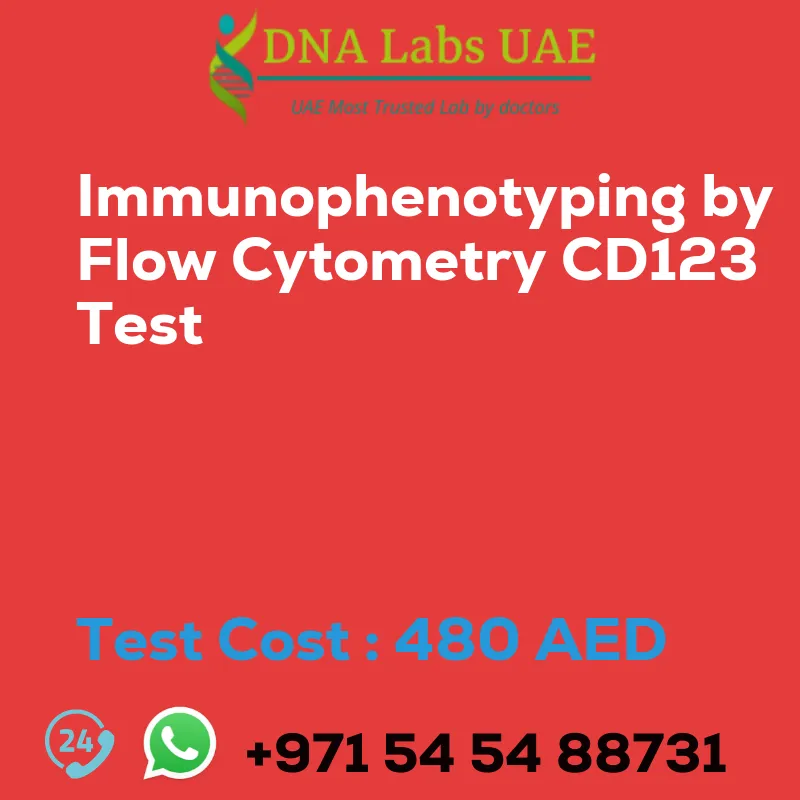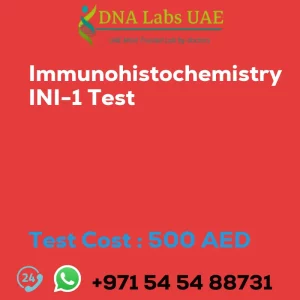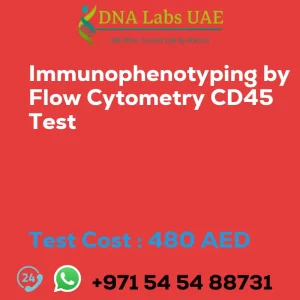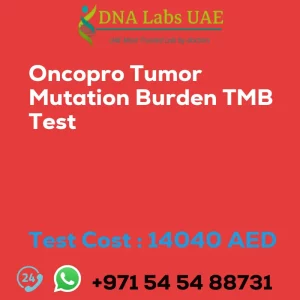IMMUNOPHENOTYPING BY FLOW CYTOMETRY CD123 Test
Test Name: IMMUNOPHENOTYPING BY FLOW CYTOMETRY CD123 Test
Components: CD123 Test
Price: 480.0 AED
Sample Condition: 3 mL (2 mL min.) whole blood in 1 Lavender Top (EDTA) tube and 3 mL (2 mL min.) whole blood in 1 Green Top (Sodium Heparin) tube OR 2 mL (1 mL min.) Bone marrow in 1 Green Top (Sodium heparin) tube. Ship immediately at 18-22°C. DO NOT REFRIGERATE OR FREEZE. Specify time, date, and clinical details on the test request form.
Report Delivery: Sample Daily by 9 am; Report Same day
Method: Flow Cytometry
Test Type: Cancer
Doctor: Hematologist, Oncologist
Test Department: FLOW CYTOMETRY
Pre Test Information: Give brief clinical history.
Test Details:
The CD123 test is an immunophenotyping assay that is performed using flow cytometry. CD123 is a cell surface marker that is expressed on certain immune cells, particularly dendritic cells and basophils. The CD123 test is commonly used in the diagnosis and monitoring of certain hematological malignancies, such as acute myeloid leukemia (AML) and blastic plasmacytoid dendritic cell neoplasm (BPDCN). It helps in distinguishing these diseases from other types of leukemia or lymphoma.
During the test, a sample of peripheral blood or bone marrow is collected from the patient. The cells in the sample are then labeled with fluorescently tagged antibodies specific to CD123. These antibodies bind to the CD123 marker on the cell surface, allowing for its detection by the flow cytometer. The flow cytometer then analyzes the labeled cells by passing them through a laser beam one at a time. The laser excites the fluorescent tags on the cells, causing them to emit light at specific wavelengths. The emitted light is detected by the flow cytometer, and the data is collected and analyzed.
The results of the CD123 test can provide valuable information about the presence and quantity of CD123-positive cells in the sample. Abnormal expression levels of CD123 can indicate certain diseases, such as AML or BPDCN. The test can also be used to monitor the response to treatment or disease progression.
In summary, the CD123 test is an immunophenotyping assay that uses flow cytometry to detect and quantify CD123-positive cells in a sample. It is commonly used in the diagnosis and monitoring of certain hematological malignancies.
| Test Name | IMMUNOPHENOTYPING BY FLOW CYTOMETRY CD123 Test |
|---|---|
| Components | |
| Price | 480.0 AED |
| Sample Condition | 3 mL (2 mL min.) whole blood in 1 Lavender Top (EDTA) tubeAND 3 mL (2 mL min.) whole blood in 1 Green Top (Sodium Heparin) tube OR 2 mL (1 mL min.) Bone marrow in 1 Green Top (Sodium heparin) tube. Ship immediately at 18\u0192??22?\u00f8C. DO NOT REFRIGERATE OR FREEZE. Specify time, date and clinical details on test request form. |
| Report Delivery | Sample Daily by 9 am; Report Same day |
| Method | Flow Cytometry |
| Test type | Cancer |
| Doctor | Hematologist, Oncologist |
| Test Department: | FLOW CYTOMETRY |
| Pre Test Information | Give brief clinical history. |
| Test Details |
The CD123 test is an immunophenotyping assay that is performed using flow cytometry. CD123 is a cell surface marker that is expressed on certain immune cells, particularly dendritic cells and basophils. The CD123 test is commonly used in the diagnosis and monitoring of certain hematological malignancies, such as acute myeloid leukemia (AML) and blastic plasmacytoid dendritic cell neoplasm (BPDCN). It helps in distinguishing these diseases from other types of leukemia or lymphoma. During the test, a sample of peripheral blood or bone marrow is collected from the patient. The cells in the sample are then labeled with fluorescently tagged antibodies specific to CD123. These antibodies bind to the CD123 marker on the cell surface, allowing for its detection by the flow cytometer. The flow cytometer then analyzes the labeled cells by passing them through a laser beam one at a time. The laser excites the fluorescent tags on the cells, causing them to emit light at specific wavelengths. The emitted light is detected by the flow cytometer, and the data is collected and analyzed. The results of the CD123 test can provide valuable information about the presence and quantity of CD123-positive cells in the sample. Abnormal expression levels of CD123 can indicate certain diseases, such as AML or BPDCN. The test can also be used to monitor the response to treatment or disease progression. In summary, the CD123 test is an immunophenotyping assay that uses flow cytometry to detect and quantify CD123-positive cells in a sample. It is commonly used in the diagnosis and monitoring of certain hematological malignancies. |







